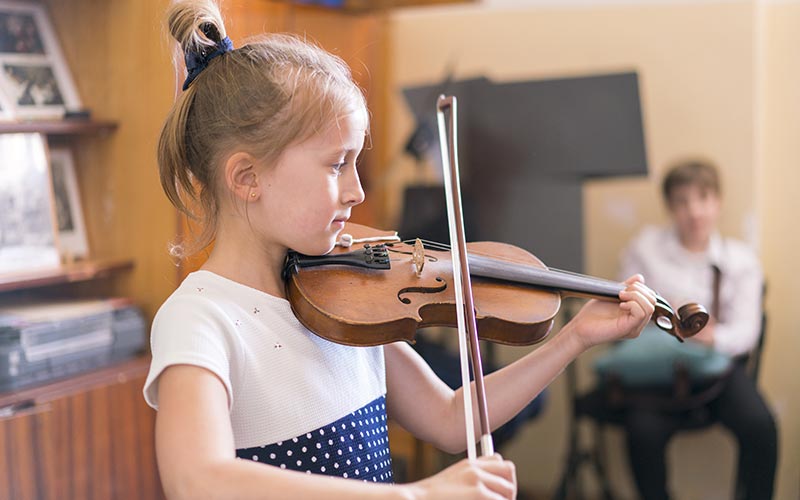When it comes to learning, boredom is one of the most common complaints voiced by children. We’ve all experienced this feeling to some degree. As soon as boredom hits, we check out from the task at hand, we lose all motivation to focus on learning, and our understanding of what we are working on might decline as a result. Boredom is bound to arise for every child at some point, albeit in or out of school. While it is difficult to prevent it from happening altogether, there are a few solutions to help minimize the boredom issue. One solution just happens to be learning an instrument.
Playing music poses several benefits for a young, aspiring musician, including boosting motivation. Existing research has confirmed this to be the case. One study reported that the rhythm of a piece, for instance, helps with motivation (Yoon, 2000). It does this by hooking the musician and keeping them attentive, motivating them as a result. Moreoever, other research indicates that playing a musical instrument or singing increases motivation for children as young as nine-years-old in school subjects such as mathematics and science (McPherson & O’Neill, 2010). So, if a child ever utters the groan-inducing phrases “I’m bored” or “I don’t get it” while doing homework, sending them to the piano or giving them their guitar might just give them the extra motivation that they need.
In addition to motivation, playing an instrument also improves memory. Numerous studies have reported that playing music enhances memory (Fung, 2016). Research shows that in a musician’s brain, the section of the frontal lobe responsible for working memory has more gray matter than the same area in the brain of a non-musician (Jäncke 2008). Gray matter is believed to be involved when we process information, so playing music is an ideal foundation for promoting a better working memory. Specifically, the chorus of a song can help reinforce memorization of an idea (Diefenbacher, 1999). Generally speaking, a song’s chorus repeats itself throughout the duration of the song. The chorus also helps students make sense of patterns, since it functions like a pattern (Yoon, 2000). One study even found that students learn how to divide and make fractions through their understanding of rhythm, beat, and scales (Kleiner). So, if pattern-based concepts such as ratio tables and number sequences are confusing for a child, practicing their weekly repertoire might just help them make sense of it. Between improved memory and increased motivation, learning an instrument presents advantages for children beyond exploring music.
References:
NAMM Foundation Website (2021). Research Briefs: Did You Know? Music Research Facts and Quotes.




